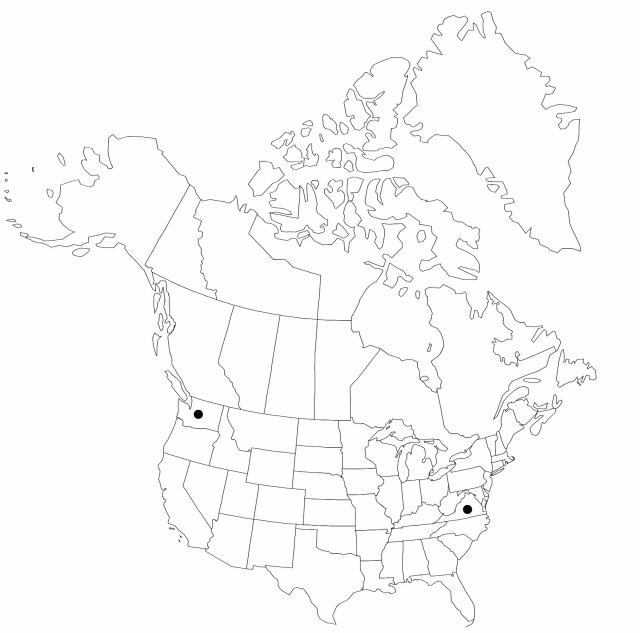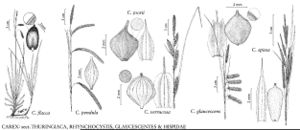Difference between revisions of "Carex pendula"
Fl. Angl., 352. 1762.
imported>Volume Importer |
imported>Volume Importer |
||
| Line 48: | Line 48: | ||
|publication year=1762 | |publication year=1762 | ||
|special status= | |special status= | ||
| − | |source xml=https:// | + | |source xml=https://bitbucket.org/aafc-mbb/fna-data-curation/src/2e0870ddd59836b60bcf96646a41e87ea5a5943a/coarse_grained_fna_xml/V23/V23_769.xml |
|genus=Carex | |genus=Carex | ||
|section=Carex sect. Rhynchocystis | |section=Carex sect. Rhynchocystis | ||
Latest revision as of 20:43, 5 November 2020
Culms trigonous in cross section, smooth distally. Leaves: ligules much longer than wide; blades 8–18 mm wide, glaucous, glabrous. Inflorescences 20–100 cm; proximal bract 15–60 cm; lateral spikes pendent, long-cylindric, (30–)60–160 × 5–8 mm; terminal spike arching. Pistillate scales narrowly ovate to narrowly obovate, 3.3–4.2 × 1–1.6 mm, ± equaling to slightly exceeding perigynia, glabrous. Perigynia yellowish green to brownish green, dotted brown, somewhat inflated, narrowly ellipsoid, 2.6–4 × 1.1–1.5 mm, herbaceous; beak smooth. Achenes brown, smooth.
Phenology: Fruiting spring–early summer.
Habitat: Roadsides, stream banks
Elevation: 0–20 m
Distribution

Introduced; Va., Wash., Europe, introduced New Zealand.
Discussion
Carex pendula is a handsome, robust clump-forming species with glaucous foliage; it is sometimes cultivated, especially in water gardens. It has a propensity to self-sow and is beginning to appear outside of cultivation on roadsides and stream banks. Its potential as an invasive species is unknown.
Selected References
None.
